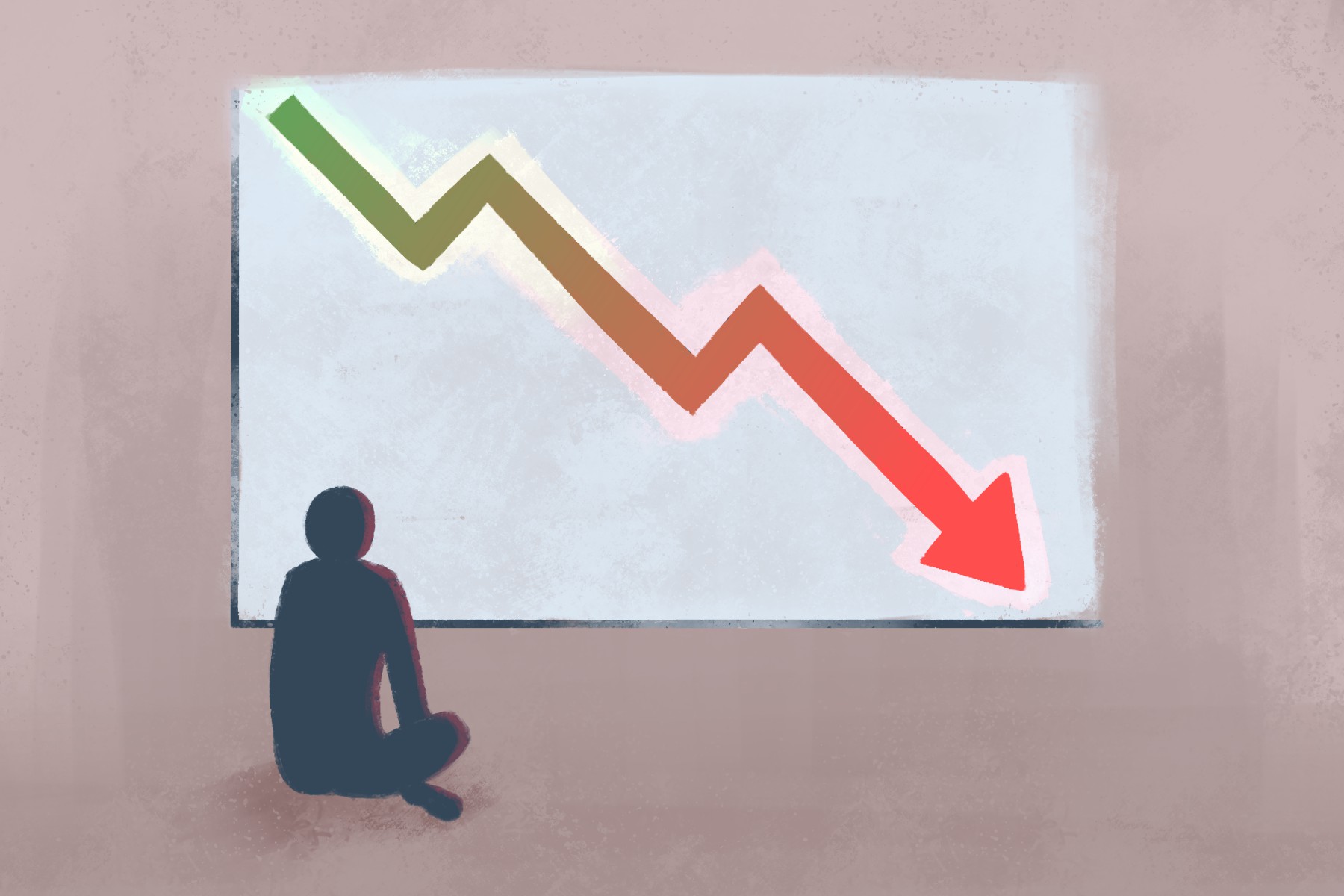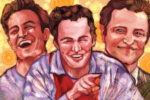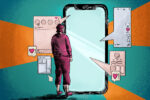On March 31st, 2023, Big Think’s YouTube channel dropped a video titled, “The Friendship Recession.” I stumbled across this very video on my YouTube suggestion page, and honestly, it scared me.
At first, I felt embarrassed to recommend this video. I assumed I existed in the niche of people who were taking the title of this video as seriously as I was. My insecurities projected the idea that I was being accused of lacking friends. Deep down, I may have believed that to be true. Despite feeling as if my loneliness had been outed in receiving this video as a recommendation, I couldn’t help but see what it had to say. I had to see if it aligned with my feelings. I had to know if there truly were others out who could relate. I had to know if this “recession” was a real thing.
In the video, Richard Reeves, a senior fellow at Brookings Institute, discusses the “friendship recession.” The term was coined by Daniel Cox, a scholar at the American Enterprise Institute, who defines it as the “rise in a number of people who lack a certain number of close friends, who have fewer people to turn to in times of crisis.”
Evidence suggests that since 1990, American men in particular have experienced a deficit in friendships, as the amount of men who claimed to be without any close friends has increased from 3% to 15%. Census data between 2014 and 2019 showed that with each year, Americans were spending less and less time with their friends.
Over the last few decades, major political, economical, public health, and technological events in our culture have impacted who we think we can trust to be our friends.
With 3.2 million views on this my fear of being alone in my feelings was immediately busted. In the months following my discovery of this video, I began to see others’ experience with the topic popping up all over my feeds. Addie Page, a Medium writer, wrote a vulnerable piece on the way the “friendship recession” affected her, titled, “Scientists Warn of A ‘Friendship Recession’ — I’m Part of It”—
“In truth, I would have signed up for anything. Comedy class, jewelry-making, naked figure drawing, reiki hand-waving, whatever. I just needed to talk to people, ideally ones who might eventually learn my name or even compliment my shoes.”
This is what Page wanted to say on her first day of a comedic acting class when the instructor asked why everyone chose to join. She was surprised to hear that everyone else’s responses weren’t too far off what she felt ashamed to say, saying things like: “I just moved here recently and wanted to meet people” and “I work remotely and I haven’t seen anybody — and I mean anybody — in, like, a week? Or two? So, I signed up for this.”
“You need a shoulder to cry on, or at least someone to have a conversation with. That’s less and less likely to be a friend now. And as society changes in all kinds of ways, technologically, economically, then I think it’s important that we pay attention to what is very often an underappreciated human relationship — which is the friendship.”
The COVID-19 pandemic caused societal changes in every aspect of our reality, so it’s no surprise that the “friendship recession” was worsened by it. Reeves elaborates:
“it’s women who’ve been most affected: with more than half of women saying they’ve lost touch with at least some of their friends. I think that’s because female friendships are more based on physical relationships on face-to-face time.”
As a woman who lived through the pandemic, I can attest to this. It’s scary to admit that COVID-19 cost me a lot of my long term relationships. I graduated highschool in 2021, a peak pandemic year, and moved to a college halfway across the country where I knew nobody, leaving behind my closest friends and family.
I quickly worried I’d made the wrong decision.
I’m an introverted person who prefers building relationships over long periods of time. For anyone who can relate, you know that college can sometimes feel like a social nightmare. While I have developed a few meaningful relationships over the past few years, loneliness is still a feeling that haunts me after moving to an unfamiliar place in the midst of a period of global isolation.
Dr. Sebastian Tong, a physician at the Family Medicine Clinic at Harborview Medical Center, defines loneliness as “the perception of not having sufficient relationships and interactions with others.” As early as 2017, three years prior to the pandemic, loneliness became a public health concern according to the current U.S. surgeon general.
In a 2019 study, 20% of younger adults are proven to be lonely.
This should be considered a pandemic in itself, as another study that took place in 2015 shows that “being lonely is as bad for your health as smoking 15 cigarettes a day.”
In researching the “friendship recession,” there is a lot of discussion of it inevitably worsening in the coming years, as the dark chasm of loneliness will get deeper and deeper if people don’t try to crawl out of it. If more awareness can be brought to the topic, more people will be aware that they’re not alone.
Understanding that you’re not alone when in a state of loneliness is the first step overcoming this disease. The next step is acceptance. Once you can accept that you are lonely, this can lead to a few enlightening discoveries.
Firstly, you can begin to practice solitude; the feeling of being comfortable with your own company. Secondly, you can begin to open up to the idea of making new friends. While a terrifying prospect for those suffering from loneliness, Reeves ends his monologue with this provocative line:
“I think as we get older, there’s sometimes a sense of shame that comes along with not having enough friends and actually saying, ‘I need a friend,’ is maybe one of the hardest sentences that any human being can utter.”
















